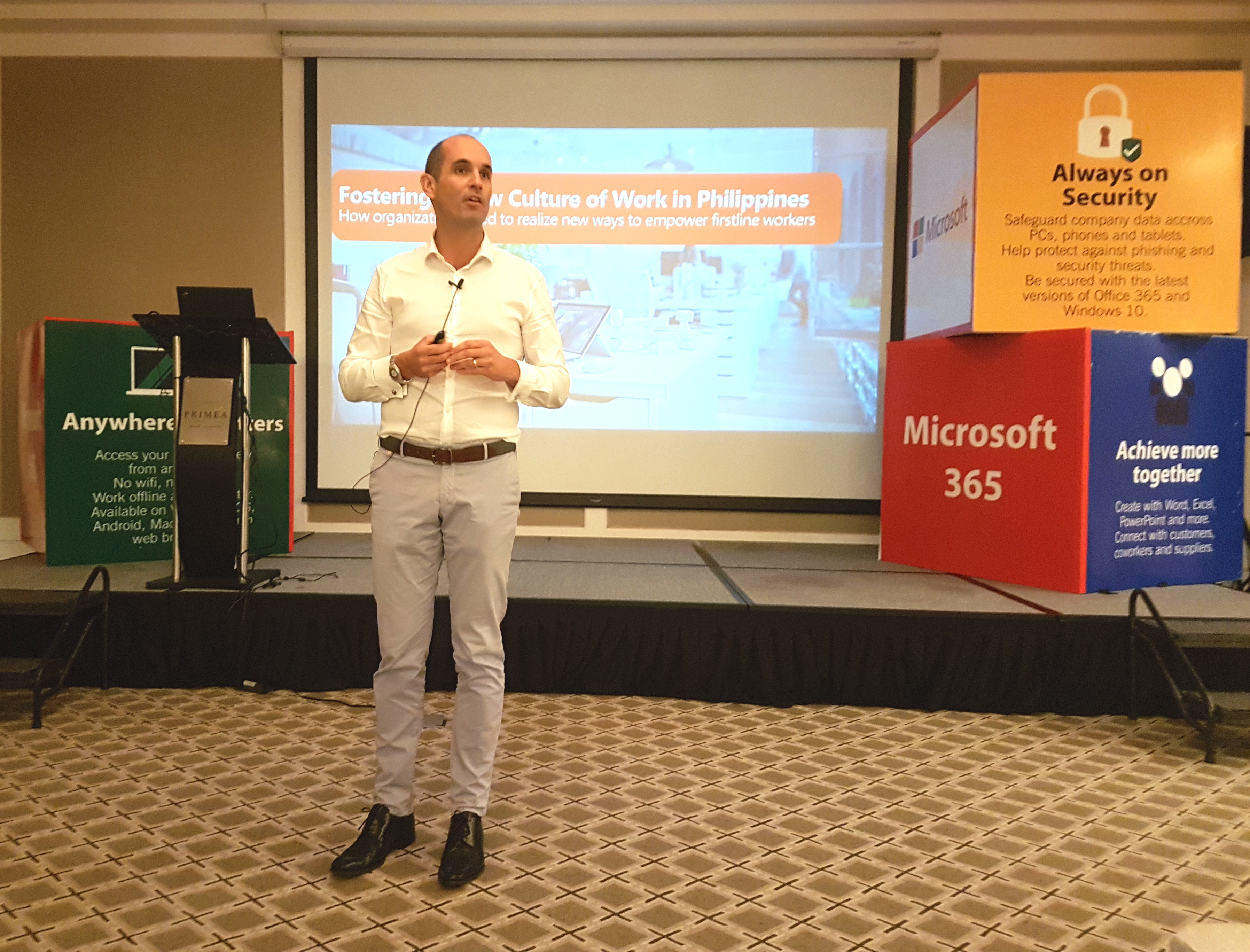
Microsoft COO and CEO Cian O’Neil talks about the changing culture of employees working outside the office. Image: Microsoft
Microsoft 365, a package of softwares developed by Microsoft, was recently launched in the Philippines amidst the changing culture of first-line workers and the growing threat of cyber attacks.
Microsoft 365 aims to address the growing trend of remote employees who do their work on laptops outside a traditional office space. This refers to first-line employees who are constantly out and about meeting with various clients.
The product mainly targets organizations and integrates several of the company’s intellectual properties, namely Office 365, Windows 10 and Enterprise Mobility + Security. The software suite also offers cyber security solutions.
Microsoft debuted an improved Advanced Threat Protection (ATP) solution to keep online threats at bay. The system constantly monitors internet browsers and email for suspicious links or programs. If detected, links are quarantined and catalogued in Microsoft’s servers while malicious programs are prevented from being opened.
Microsoft maintains their own list of existing malicious software and links so that no information is forwarded to any third-party security company. The company continues to monitor for new threats based on reports sent in by Microsoft 365 and updates its database accordingly.
A previous report ranked the Philippines as the eighth country in Asia most vulnerable to malware attacks. JB
RELATED STORIES:
Philippines ranked 8th most vulnerable to malware attacks in Asia
WATCH: MacOS High Sierra may put passwords at risk
Wificoin grants Wi-Fi access in exchange for cryptocurrency